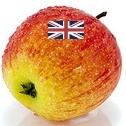Eating More Sustainably

People’s food choices also have a huge impact on the planet. Livestock (animals farmed for food or cows used for dairy products) are the world’s largest users of land resources. Not only do the animals themselves need land to live on, but almost 80% of all the world’s agricultural land is used for growing feed for the animals. A growing demand for beef is the number one cause of deforestation in the world, as forests are cut down to make space for animal feed crops, like soy. Eating meat less frequently is one way people might choose to eat more sustainably.
Overfishing is the removal of a species of fish from any body of water at a rate that the species can’t replenish quickly, resulting in those species becoming depleted or very underpopulated in that particular area. Certain types of fishing, such as trawling, where huge nets are dragged along the ocean floor, can be especially harmful. Some forms of overfishing can upset entire ecosystems and the damage can be extremely difficult to undo. Look out for fish with the Marine Stewardship Council (MSC) logo, which shows that it has come from sustainable sources.
In the UK, people can choose from a wide range of foods. Shoppers expect to be able to buy food quite cheaply, so the people who are growing it may not always be paid very much for it. There is also a lot of demand for foods that are not grown locally, such as bananas and avocados. Lots of food for sale in the UK has been grown all over the world and transported to our country. The vehicles used to carry this food thousands of miles all emit even more harmful carbon dioxide into the atmosphere.
In order to produce as much food as possible to meet demand and to keep prices as low as possible, many farmers use methods of intensive farming, to keep yields high. This might include using chemical fertilisers and pesticides and not giving the soil in their fields long to recover from a harvest before planting another crop. This damages the nutrients in the soil over time. Currently, around 40% of the world’s agricultural land is seriously degraded, with some predictions suggesting that the planet will only be able to sustain another 60 harvests if farming methods remain the same. Although it is more expensive, organically grown food uses fewer harmful fertilisers and pesticides and is grown in a more sustainable way.
There is also the issue of the way that food is distributed around the planet. According to the UN, 820 million people don’t have enough to eat, which is around 1 in every nine people in the world. Another 1.3 billion people don’t have access to enough nutritious food, so they don’t get a balanced, healthy diet. At the same time, one third of food produced for humans (around 1.3 billion tons) gets wasted every year. Choosing more locally grown produce helps to reduce the number of ‘food miles’ that your meals have travelled. It’s also important not to waste food. Planning meals can help cut down on waste and composting food scraps prevents them from ending up in landfill.
Read More: Wasting Less Water